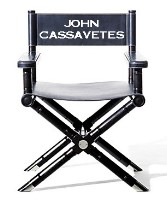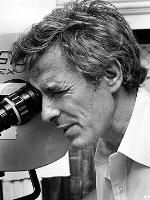 |
 |
Regarded as the pioneer of American cinema verité, John Cassavetes experienced success as both an accomplished actor and an innovative filmmaker. He demonstrated courage as a director in his trail-blazing path of experimental, inexpensive features that were regarded as the American counterparts to the Nouvelle Vague. It has been stated that his cinema expressed themes of a previously unrecognized vein of strident American modernism that went against the bleak and hollow forms of many artistic contemporaries. Cassavetes' films have kinship to the philosophical literature penned by Emerson, most emphatically as examples of the consequences of embracing a lifestyle of extreme pragmatism. Cassavetes' work is celebrated with its ability to imbue both the metaphysical and existential revelations of communication through life experience. Much of his early work is considered a watershed in the birth of American independent cinema. |
|
|
||
|
Suggested Reading (click cover or title for more info)
Cassavetes on Cassavetes |
Director - Feature filmography and DVDBeaver hyperlinks:
Big Trouble (1986), Love Streams (1984), Gloria (1980), Opening Night (1977), The Killing of a Chinese Bookie (1976), A Woman Under the Influence (1974), Minnie and Moskowitz (1971), Husbands (1970), Faces (1968), A Child is Waiting (1963), Too Late Blues (1961), Shadows (1959) Actor (some) : Mikey and Nicky (1976), Columbo: Étude in Black (1972), (TV) Rosemary's Baby (1968), The Dirty Dozen (1967), The Killers (1964), No Right to Kill (1956), Crime in the Streets (1955) |
|
